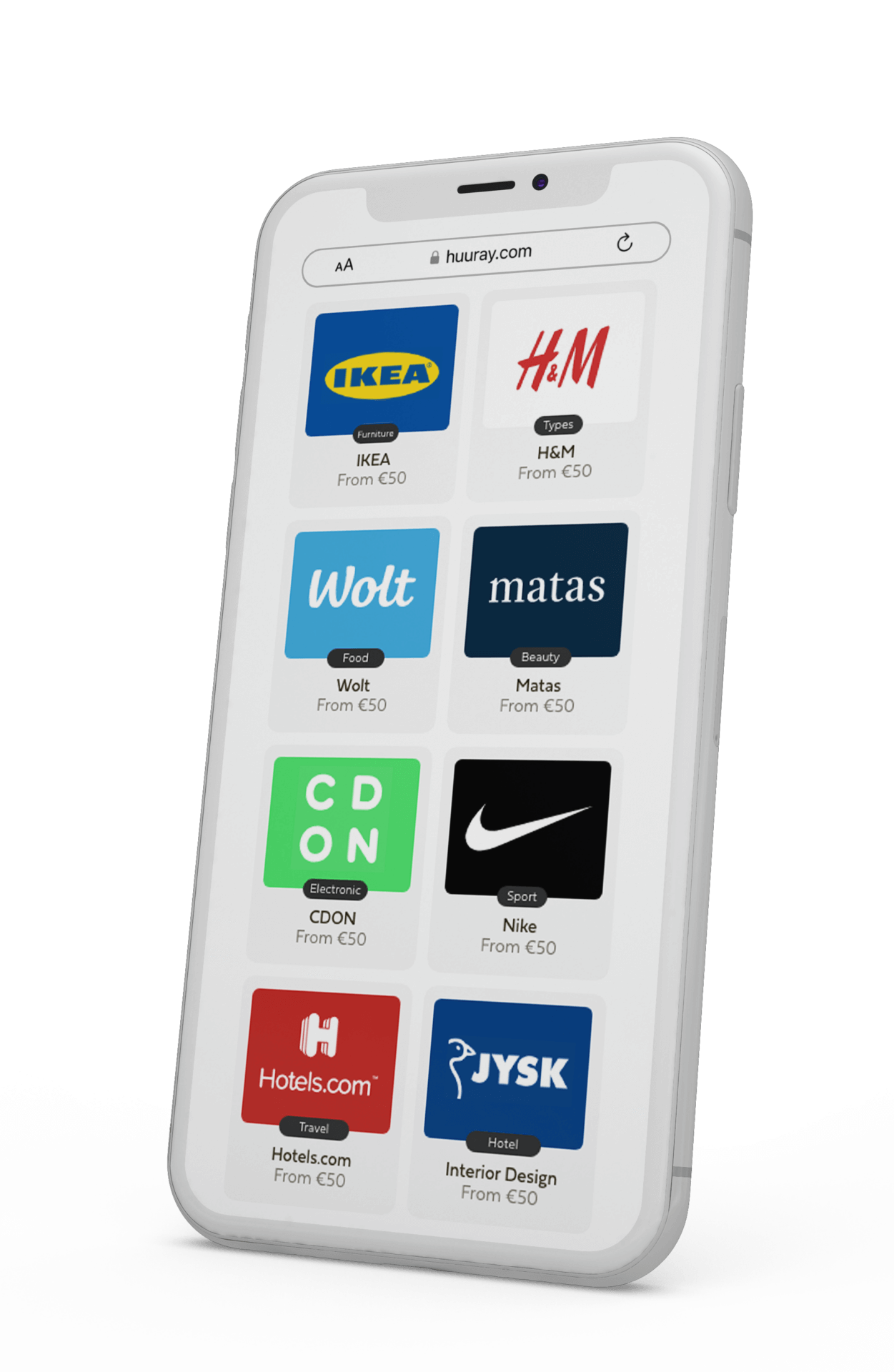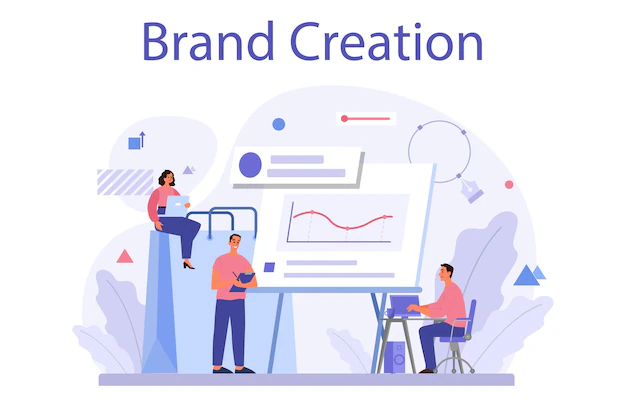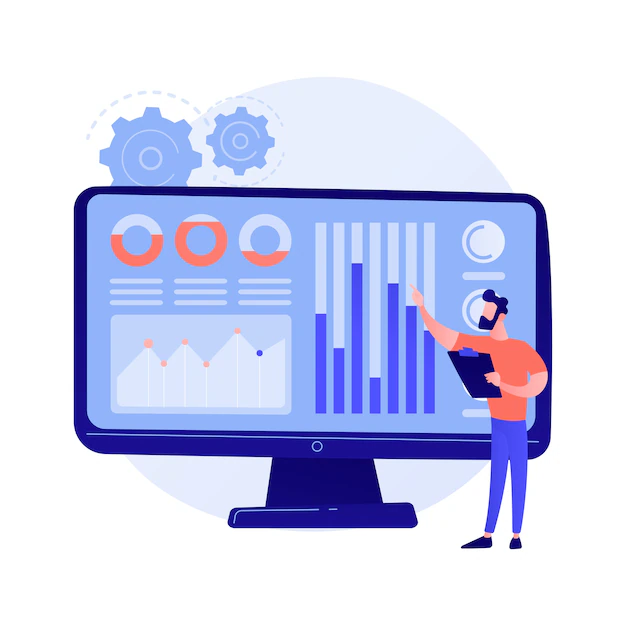Healthcare Market Research: Shaping the Future of Care


by Signe Hegart
October 18, 2023
In today’s competitive business landscape, companies are continually exploring strategies to gain a competitive edge. One effective approach that many companies have embraced is the implementation of employee incentives and rewards across various departments. This blog post will delve into how companies can harness the power of research incentives and rewards, specifically in the healthcare industry, to enhance and maximize their market research efforts.
Jump to section
What is Healthcare Market Research?
Healthcare market research is a specialized field that involves collecting and analyzing data related to the healthcare industry. This research helps companies gain insights into market trends, customer preferences, and competitive landscapes. By understanding these factors, companies can make informed decisions and develop effective strategies to meet the needs of their target audience.
Why is Healthcare Market Research Important?
Healthcare market research is essential for several reasons. Firstly, it provides valuable information about the current and future market conditions. This data helps companies identify opportunities and potential risks, allowing them to stay ahead of their competitors.
Secondly, healthcare market research helps companies understand their target audience better. By studying consumer behavior, preferences, and needs, companies can create products and services that are more aligned with their customers’ expectations. This customer-centric approach improves customer satisfaction and loyalty, leading to increased sales and revenue.
Additionally, healthcare market research helps companies make data-driven decisions. Instead of relying on assumptions or guesswork, companies can base their strategies on concrete data and insights. This reduces the risk of making costly mistakes and improves the overall efficiency of operations.
Employee incentives in Healthcare Market Research
Healthcare market research is not just about data collection and analysis; it’s about understanding the complexities of the healthcare ecosystem. It involves a multitude of factors, including patient experiences, healthcare provider behaviors, regulatory changes, and technological advancements. To unravel these intricacies, motivated and skilled professionals are essential. In this context, incentives in healthcare market research serve as catalysts for excellence. They come in various forms, from financial rewards to recognition and career development opportunities. Here are some key ways in which incentives are making a difference:
Incentivizing Survey Participation
Healthcare market researchers often conduct surveys and studies to gather valuable data and insights from healthcare professionals, patients, or other relevant stakeholders. To encourage participation, they may offer gift cards as incentives to those who complete the surveys. Gift cards are a popular and effective way to motivate individuals to share their opinions and experiences.
Patient Feedback and Satisfaction Surveys
In healthcare, patient feedback is crucial for improving the quality of care and services. Hospitals, clinics, and healthcare providers may use gift cards as rewards for patients who participate in satisfaction surveys or provide feedback on their experiences. This helps in understanding patient needs and improving the overall healthcare experience.
Motivation and Commitment
In the world of healthcare market research, motivation and commitment are the cornerstones of success. Incentives play a pivotal role in inspiring professionals to give their best in their research endeavors. When employees are aware of the potential for recognition or rewards, they develop a deeper commitment to their work. This commitment translates into a heightened level of enthusiasm, dedication, and effort invested in research projects. Researchers who feel appreciated and incentivized are not just completing tasks; they are driven by a genuine passion for contributing to the body of knowledge in the healthcare industry. Their motivation and commitment result in more meaningful and impactful research outcomes.
Clinical Trials and Research Studies
Pharmaceutical companies and research institutions may conduct clinical trials and research studies within the healthcare industry. They may use gift cards to compensate participants for their time and participation. This is especially common in long-term studies, where participants may need ongoing motivation.
Employee Engagement and Research
Healthcare organizations may conduct internal research to understand employee satisfaction, engagement, and workplace dynamics. Gift cards can be used as incentives for employees to participate in these surveys, allowing the organization to identify areas for improvement.
Quality and Accuracy
Quality and accuracy are paramount in healthcare market research. The insights gathered from research inform critical decisions in the healthcare industry, from treatment protocols to resource allocation. Highly motivated professionals, incentivized through various means such as recognition, bonuses, or career development opportunities, are inclined to deliver research of the highest quality. They approach their tasks with meticulous attention to detail, leaving no room for errors or oversights. This dedication to precision ensures that the data collected is robust, reliable, and truly reflective of the healthcare landscape. As a result, decision-makers can place a high degree of trust in the research findings, leading to better-informed strategies and actions in the healthcare sector.
Team Collaboration
Healthcare market research is often a collaborative endeavor. It involves diverse teams of professionals, each contributing their unique expertise to the research process. Incentives play a pivotal role in promoting teamwork and collaboration. When individuals within a research team are incentivized, they tend to work more cohesively, capitalizing on each other’s strengths and areas of expertise. The prospect of rewards or recognition fosters a sense of unity and shared purpose among team members. This collaborative spirit leads to more efficient and effective research processes, as team members pool their knowledge and skills to produce comprehensive and insightful research outcomes. The result is a research team that functions as a well-coordinated and high-performing unit, driving the success of healthcare market research projects.

Send yourself a gift card as Healthcare Market Research incentives
How is Healthcare Market Research Conducted? ????
Healthcare market research can be conducted through various methods, including surveys, interviews, focus groups, and data analysis. Surveys involve collecting data from a large group of individuals to gather information about their preferences, opinions, and behaviors.
Interviews, on the other hand, involve one-on-one interactions with individuals to delve deeper into their thoughts and experiences. Focus groups bring together a small group of individuals to discuss a specific topic or product, allowing for in-depth discussions and insights.
Data analysis involves examining and interpreting existing data, such as sales figures, customer demographics, and market trends, to uncover patterns and trends.
To conduct healthcare market research, companies can either conduct the research in-house or hire a market research firm. In-house research allows companies to have complete control over the process and data, but it can be time-consuming and requires expertise in research methodologies.
Hiring a market research firm, on the other hand, offers several advantages. Market research firms have specialized knowledge and experience in conducting research, ensuring accurate and reliable results. They also have access to a larger pool of participants, allowing for more diverse and representative data. Additionally, outsourcing market research allows companies to focus on their core competencies while leaving the research to the experts.
Read also: 46 Employee Engagement Tools: Create a Culture of Engagement
Types of Healthcare Market Research
There are several types of healthcare market research that companies can utilize to gather valuable insights. These include:

Brand Analysis
This type of research focuses on understanding how consumers perceive a company’s brand and its products or services. It involves measuring brand awareness, brand loyalty, brand image, and brand positioning. Brand awareness research assesses the extent to which consumers recognize and recall the brand. Brand loyalty research seeks to determine the level of customer commitment to the brand, considering factors like repeat purchases.

Customer Satisfaction Surveys
These surveys gather feedback from customers to assess their satisfaction levels with a company’s products or services. The data collected helps identify areas for improvement and measure the effectiveness of customer service strategies. In essence, customer satisfaction surveys play a strategic role in refining operations, strengthening customer relationships, and promoting business growth. By listening to customer feedback and taking appropriate actions, companies can enhance their offerings and adapt to evolving customer needs and preferences.

Market Segmentation
Market segmentation research is a pivotal strategy that empowers companies to understand and cater to the diverse needs and preferences of their customer base. It involves dividing the market into distinct segments or groups of consumers who share similar characteristics, which can encompass their demographics, behaviors, psychographics, or even geographic locations. This segmentation provides a host of benefits that enhance a company’s ability to effectively reach and serve its target audience.

Product Development and Testing
Research during the development and testing phases of a new product or service is a fundamental step that businesses undertake to ensure their offerings align with customer demands and market dynamics. This type of research serves as a guiding light for companies as they innovate, design, and fine-tune their products and services. In essence, research during the development and testing phases is a strategic imperative for businesses. It enables them to create products and services that are not only technically sound but also deeply aligned with the market’s demands and the needs of their customers.

Competitive Analysis
Competitive analysis research in the healthcare industry is a critical process that allows companies to gain a comprehensive understanding of their competitive landscape. This research delves into the intricacies of what makes competitors successful or where they may be falling short. It equips companies with the knowledge to refine their strategies, identify new opportunities, and address market gaps. By understanding their competitors and the broader market landscape, healthcare organizations can remain agile, innovative, and successful in delivering high-quality products and services to their customers.

Pricing Research
Pricing research is essential for businesses. It helps determine the right price for products or services, balancing profitability and competitiveness. This research involves analyzing customer willingness to pay, assessing price sensitivity, understanding competitor pricing, and considering the impact on demand. The goal is to set prices that maximize revenue and profitability. Pricing research also informs strategies like product bundling and promotions, ensuring clear pricing communication. It’s an ongoing process that adapts to market changes, making it crucial for long-term success.

Market Trends Analysis
Market trend analysis is a vital ongoing process for businesses. It involves monitoring technological advancements, regulatory changes, and shifts in consumer preferences within their industry. This analysis helps companies stay informed, make informed decisions, and adapt to market dynamics. It also influences innovation, strategic planning, and customer engagement strategies. In essence, it’s about proactively shaping a business’s future within its industry by staying ahead of changes and opportunities.
Let’s have a chat
Benefits of Healthcare Market Research
1. Identifying Opportunities: Market research provides companies with valuable insights into consumer needs and preferences, allowing them to identify new market opportunities. By understanding market trends and customer demands, companies can develop innovative products and services that meet consumer needs and create a competitive advantage.
2. Improving Decision-Making: Market research helps companies make informed decisions by providing data-driven insights. It allows them to evaluate the potential success of new products or services, assess the effectiveness of marketing campaigns, and identify areas for improvement in customer satisfaction and loyalty.
3. Enhancing Customer Satisfaction: By gathering feedback from customers through surveys and other research methods, companies can identify areas where they can improve customer satisfaction. This information can be used to make necessary changes to products, services, or customer service strategies, ultimately leading to increased customer loyalty and retention.
4. Gaining Competitive Advantage: Through competitive analysis, companies can gain a deeper understanding of their competitors’ strengths and weaknesses. This knowledge can be used to develop effective marketing and positioning strategies to differentiate themselves from their competitors and gain a competitive advantage in the market.
5. Minimizing Risk: Conducting market research allows companies to minimize the risks associated with product development, marketing campaigns, and market entry. By gathering data and insights, companies can assess market demand, evaluate potential risks and challenges, and make informed decisions to mitigate those risks.
6. Tracking Industry Trends: Healthcare market research helps companies stay updated on industry trends and developments. This knowledge is crucial for companies to adapt to changing market conditions, anticipate future trends, and stay ahead of their competitors.
7. Targeting the Right Audience: Market research enables companies to identify and understand their target audience better. By segmenting the market and analyzing consumer behavior, companies can tailor their marketing messages and strategies to effectively reach their desired customer base.
8. Optimizing Pricing Strategies: Through market research, companies can gather data on consumer perceptions of pricing and determine the optimal price points for their products or services. This information helps companies set competitive pricing strategies that maximize profits while remaining attractive to customers.
9. Conducting Effective Market Entry: Before entering a new market or launching a new product, companies need to conduct thorough market research. This research helps them assess market demand, competition, and potential barriers to entry, ensuring a successful market entry strategy.
10. Evaluating Marketing Campaigns: Market research provides companies with valuable feedback on the effectiveness of their marketing campaigns. By measuring customer response and engagement, businesses can identify what is working and what needs improvement in their marketing efforts.
Read also: 80 Employee Engagement Ideas for Success
Healthcare Market Research Audiences ????????????????????
Market research in the healthcare industry is crucial for various audiences, including:
1. Pharmaceutical Companies

Market research helps pharmaceutical companies understand the needs and preferences of healthcare providers and patients. This knowledge allows them to develop effective marketing strategies, ensure compliance with regulations, and improve patient outcomes.
2. Healthcare Providers

Market research helps healthcare providers, such as hospitals and clinics, understand the changing needs and demands of patients. This information can guide them in improving the quality of care, implementing new technologies, and optimizing resource allocation.
3. Healthcare Insurers

Market research allows healthcare insurers to gain insights into consumer preferences, behavior, and perceptions of health insurance products. This knowledge helps them develop tailored insurance plans, improve customer satisfaction, and effectively compete in the market.
4. Medical Device Manufacturers

Market research helps medical device manufacturers understand the needs of healthcare professionals and patients when it comes to medical devices. This information can guide them in developing innovative and user-friendly products, improving patient outcomes, and gaining a competitive edge.
5. Government and Regulatory Bodies

Market research provides valuable insights to government agencies and regulatory bodies in understanding the healthcare landscape, identifying gaps in healthcare services, and formulating policies and regulations that address the needs of the population.
6. Healthcare Technology Companies

Market research helps healthcare technology companies understand the needs and preferences of healthcare providers, patients, and other stakeholders. This knowledge allows them to develop and market innovative solutions that improve healthcare delivery, patient engagement, and overall operational efficiency.
5 Healthcare Research Companies
IQVIA
IQVIA is a leading healthcare research company that provides market intelligence, data analytics, and consulting services to pharmaceutical companies, healthcare providers, and insurers. They offer a wide range of research solutions, including market sizing, competitive analysis, and brand tracking.
Kantar Health
Kantar Health is a global healthcare research and consulting firm that specializes in understanding patient behavior, healthcare provider dynamics, and market trends. They offer a comprehensive suite of research services, including patient journey mapping, market access insights, and brand positioning research.
Nielsen Healthcare
Nielsen Healthcare is a division of Nielsen, a renowned market research company. They provide insights and analytics to healthcare clients, helping them understand consumer behavior, track brand performance, and identify growth opportunities. Their services include market segmentation, brand tracking, and consumer satisfaction research.
GlobalData
GlobalData is a leading provider of market intelligence and advisory services in the healthcare industry. They offer research and analysis on various healthcare sectors, including pharmaceuticals, medical devices, and healthcare IT. Their services include market tracking, competitive intelligence, and strategic consulting.
Read also: 60 Market Research Firms For Maximizing Your ROI
Tips for Healthcare Market Research
Market healthcare research is essential for healthcare organizations, pharmaceutical companies, and related businesses to understand and adapt to the dynamic healthcare landscape. Here are some tips for conducting effective healthcare market research:
- Clearly Define Your Objectives: Start with a clear understanding of your research goals. Are you looking to assess patient satisfaction, identify market opportunities for a new medical device, or understand physician prescribing behavior? Define your objectives to guide your research.
- Select the Right Research Methods: Healthcare research can involve various methods, such as surveys, interviews, focus groups, or data analysis. Choose the methods that align with your research objectives and target audience. For instance, surveys are effective for patient feedback, while physician behavior may require in-depth interviews.
- Compliance with Regulations: Be mindful of healthcare regulations, especially when dealing with patient data or medical records. Ensure that your research methods are compliant with laws like HIPAA (Health Insurance Portability and Accountability Act) to protect patient privacy and confidentiality.
- Access Reliable Data Sources: Gather data from reputable sources. Access to quality data, whether it’s clinical data, patient records, or market reports, is crucial for accurate and reliable research.
Conclusion
Effective healthcare market research is vital for organizations in the healthcare sector. Define clear objectives, use appropriate methods, ensure compliance, and access reliable data sources for valuable insights. Partner with established providers like IQVIA, Kantar Health, and GlobalData for tailored research solutions. Utilize market intelligence to understand trends, assess patient satisfaction, identify opportunities, and gain insights into physician behavior. This informs strategies, product development, and marketing, leading to improved patient outcomes and business success. In summary, healthcare market research is essential for healthcare organizations, guiding them in a dynamic industry landscape.



Let’s have a chat
FAQ
Healthcare market research provides valuable insights into patient satisfaction, market opportunities, and physician behavior. It helps organizations understand industry trends, identify gaps in the market, and make informed decisions to improve patient outcomes and business success.
Common research methods used in healthcare market research include surveys, interviews, focus groups, and data analysis. The choice of method depends on the research objectives and target audience.